
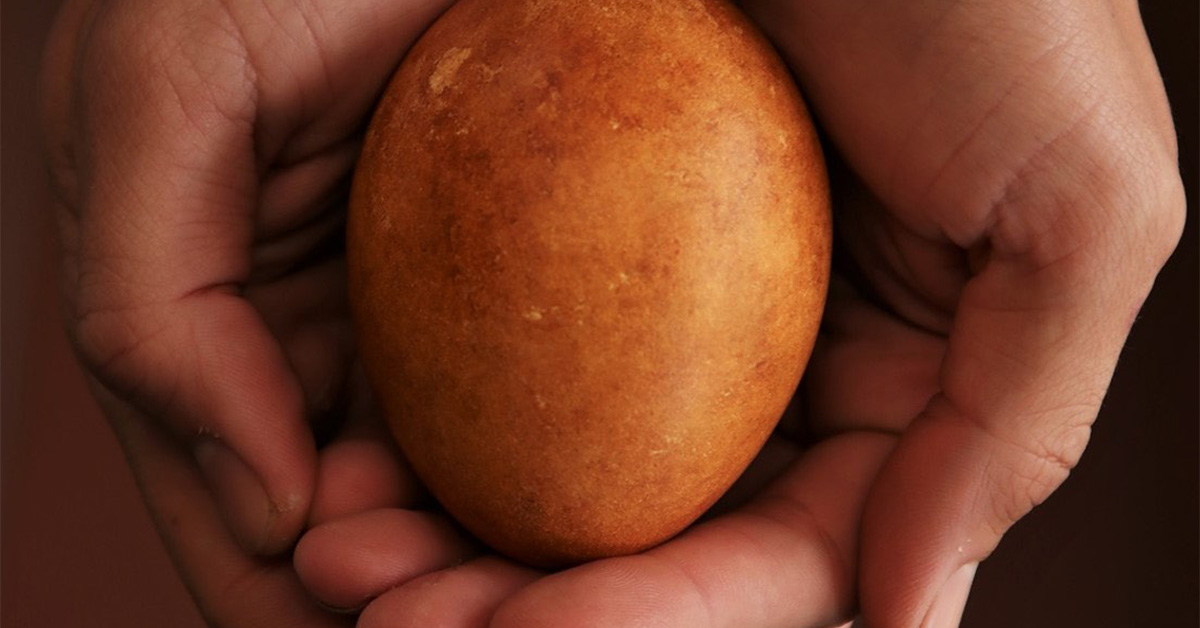
Jarrod Howard-Browne interviews Brad Anderson. Jarrod is part of the KLC’s operations team. Photos taken at Wellspring Farm by the author.
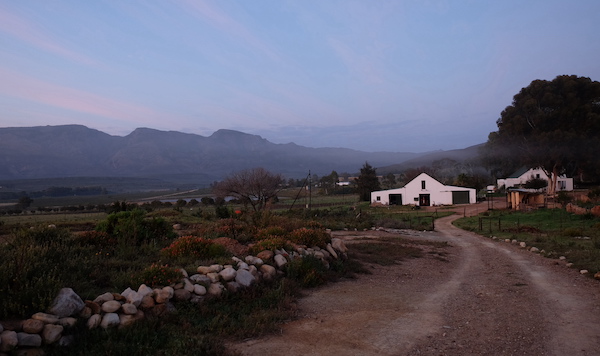
Jarrod H-B: Brad, thank you so much for taking the time to tell us about yourself, your farm, your vocation as a farmer, how farming intersects with your faith, and much more besides.
Let’s take a step back for a second and get the lay of the land, as it were. Can you tell us a bit about yourself, your family and your farm?
Brad Anderson: Thanks for the opportunity to share our story! Let me start by saying that we are still very new to the regenerative agriculture adventure, and there are many other people way ahead of us! You see, not too long ago, my wife Anne and I were city folk, living with our four children (Josh, Ben, Timia and Hannah) in Cape Town, where I was serving as one of the pastors of a large multi-site church community. Now we live on a farm thirty kilometers from our nearest town, Robertson, in the Western Cape, South Africa. Our lives have changed a little! The farm belongs to new friends, Ant and Lynn Robinson. It’s three hundred and sixty hectares in size, and there are still big portions that we are not actively working with yet.
JH-B: So, you don’t come from a farming background then. For many, quitting your job and relocating your family from a bustling city out into rural South Africa to take up farming may seem like a radical move. What were some of the major turning points in your journey that led you to where you are now?
BA: A radical move is one way to describe it! I am sure many people thought, or still think, that we were just plain crazy. For us, however, it was a long process and slow shift in our sense of passion and calling in life. The starting point was actually chronic illness. Anne was diagnosed with Crohn’s disease while at university, and although she had a few years of remission, it flared up dramatically around 2016. The mainstream medical thinking was very much focused on managing symptoms, but Anne started exploring how diet might impact the disease, leading us to realise that not all food is equal. I’m not just talking about types of food, I’m talking about how the food is actually produced. Modern industrial farming focuses on maximum production at the lowest cost possible, and the result is nutrient-deficient food at best, and at worst, food that is compromising our health. That was certainly the case for Anne. So that really got us interested in how our food was being produced – who was farming, where and how. Regenerative agriculture grew from an interest to a passion as we discovered trailblazers like Joel Salatin, Richard Perkins and Justin Rhodes.
Then in 2018 we had the incredible opportunity to work and live on a regenerative farm in Florida for three months, partly to test if this growing passion was something we wanted to pursue as a family. That was a key turning point, because although we saw some of the more challenging elements and the hard work of farming, our desire and passion grew stronger. When we came back to Cape Town, we spent some time processing this with our fellow leaders and friends, and asked God to make clear what our next steps should be. And, wow, God really led us very clearly. Over the course of twenty-four months, we resigned from our ministry position, endured the Covid lockdown, met Ant and Lynn, felt God leading us into a farm partnership with them, and in February of 2021 we moved onto Wellspring Farm. At times it was a testing season of waiting for God to lead, and at times it was a whirlwind of responding to his open doors.

JH-B: Your passion for the farm and for farming in general is so evident to all who know you. What is your vision for Wellspring Farm and the work you do there in particular?
BA: Well, in short, our passion and vision is to produce nutrient-dense food that heals people’s bodies while restoring the environment. We want to see our farm growing in ecological health and wealth each year. More biodiversity. More ecological resilience. Healthier soil. Healthier plants. Healthier animals. Healthier food. Healthier customers.
But there is another element to our vision. We want to share this space with others, so we are passionate about the farm being a place where people and relationships can be restored and renewed. Where people can come and experience our heavenly Father in a new and refreshing way.
JH-B: I don’t think it is an overstatement to say that without farmers, farms, and farming, human society would not exist. And yet farmers and their work have been increasingly relegated to the margins of society, with your average person knowing very little about where their food comes from or how it is produced. Can you help us to understand better the role farming plays in the modern world and why it is so vital?
BA: I think you are absolutely right, farmers play an essential role in any society. I love the quote from Wendell Berry around this when he said, “We are all farmers by proxy.” We all need to eat, and that food must be produced somewhere and by someone, so essentially, we all outsource our food production to a farmer. The sad reality is that in today’s world, most people are completely disconnected from their farmers. Ask many children where eggs come from, and they will simply point to a supermarket. But the role of a farmer goes beyond just food production. Farmers are also stewarding the land they are working, and their farming practices are either harming or healing the environment. There really is no neutral ground in this – farmers are either contributing to the demise of our global ecosystem or nurturing it towards regeneration and restoration. Now, if you take that to its natural conclusion, as consumers, our choices around what food we buy and from which farmers becomes a direct endorsement and support of that farmer’s practices. If I buy a chicken from a Concentrated Animal Feed Operation (CAFO) I am supporting a broken, cruel and environmentally detrimental farming system. But when we buy from a regenerative farmer who is focused on the holistic regeneration of their land, we are not only getting a much higher quality product but are also playing a role in healing our planet.
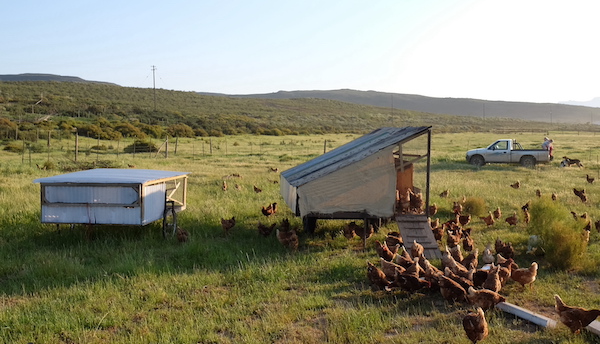
JH-B: Foundational to your farming philosophy and practice are the tenets of regenerative agriculture. Why have you embraced it as your method of farming – as opposed to the methods of modern industrial agriculture – and what does regenerative agriculture look like for you in practice?
BA: At the core of regenerative agriculture is the nurturing of healthy soil, so we farm using a number of principles to lead us towards that end:
In practice, on our farm, that means that we are managing lots of different agricultural enterprises – cows for dairy and beef, sheep, chickens for eggs, trees for fruit – and we are trying to choreograph all those elements carefully as we try to mimic nature and ultimately grow healthy, living soil. We move our animals often (at least every two days) and then allow the grasses a long time to recover, creating a pattern of pulsing growth that promotes deep roots and a soil rich in carbon. It is all about holistic management towards the goal of a healthy ecosystem.

JH-B: How does your Christian faith inform your farming? And how does farming inform your Christian faith?
BA: Oh, it is huge! It takes me all the way back to Genesis where we were asked to steward God’s creation. The picture we get in Genesis is not an extractive mentality – get as much out of the planet as fast as we can, no matter the cost to creation itself. That is what I see around the world now, not just in mainstream agriculture. Rather, we are given this mandate to care for creation, to massage it into its fullest and most productive potential. My sense is that, around the world, God is calling more and more of his followers back to that vocation. So, my farming is rooted in Genesis’ calling to steward creation but is also rooted in the Revelation image of a new heaven and new earth. I have no idea what that is ultimately going to look like, but my sense is that God has called us to begin creating a space that is foreshadowing the restorative work that God is doing and will perfect in creation itself. I feel like this regeneration of a piece of land is a tangible demonstration of God’s heart for redemption and restoration – of people’s hearts primarily, but also of creation that is “groaning” for his appearing. I ask the question, “Does God care about how we farm?” For me it is a resounding yes. And then that filters down to, “Does God care about what food I buy and how it was produced?,” and again, I think the answer must be yes.
JH-B: Most of us are not and will not be farmers, and yet, as you reminded us via Wendell Berry, “We are all farmers by proxy.” What are some of the things that we as everyday citizens can do to participate in farming practices and a food chain that heed God’s call to be good stewards of creation and seek its flourishing?
BA: Again, I would encourage people to dig deeper into the food system and where their food comes from. Read The Omnivore’s Dilemma by Michael Pollan. Watch the documentary Kiss the Ground. Then I would encourage people to try to make regular small shifts in their buying and eating habits and choices. Try to grow a consciousness of where your food comes from and how it was produced. The context will be different for everyone, but increasingly regenerative farmers are looking to make their produce available to conscious consumers through food clubs, Community Supported Agriculture (CSA) networks and online shops. If you spend some time looking, you will likely find there is an emerging food system that runs independent of the mass food and supermarket machine. It is normally not as convenient, but convenience should not be the primary driver for our food purchases. We need to focus on the farming practices and the subsequent nutrient quality. And let me just say, often people would complain that these food options are more expensive. That may be true from a purely monetary perspective – but what of the hidden costs? Cheaper food results in poorer health leading to higher medical bills. Cheaper food is less nutritious resulting in the need for greater volumes to be consumed. Cheaper food is ultimately costing the global ecology. We need to start thinking more holistically in our food system.
But small steps – that is key. A dramatic overnight shift is a daunting prospect. So, change one thing at a time. Find better eggs or eat less processed food – allow that to become your new normal and then make another shift.
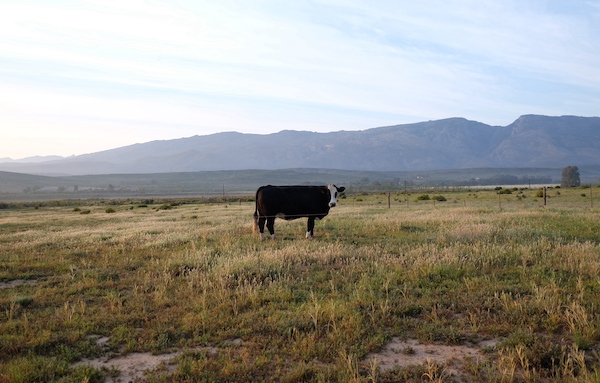
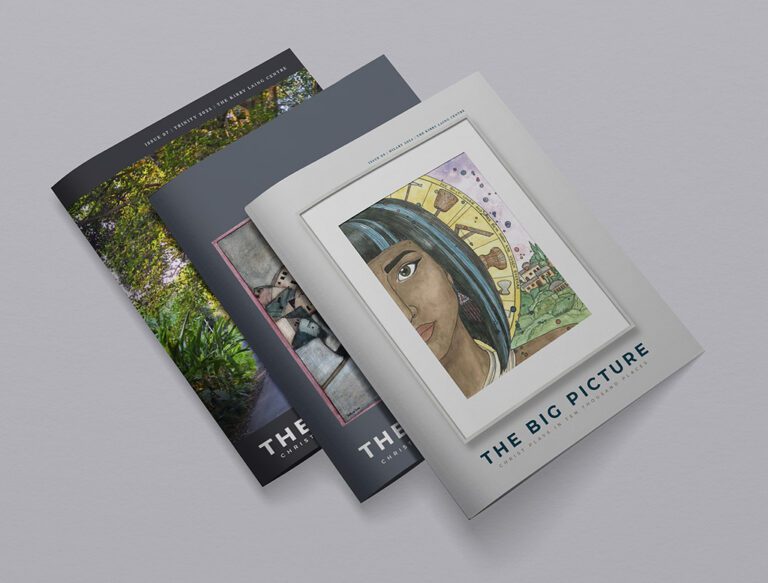
Get the latest issue in print or subscribe for the next three.